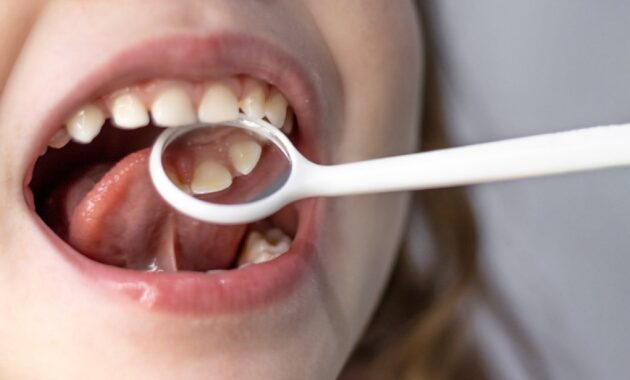Tooth decay is a common problem among children, and it is best to recognise the early signs of tooth decay to avoid its progression.
Tooth decay, also known as cavities, is a common problem, especially among children. Recognising the early signs of tooth decay and taking preventative measures can affect your child’s oral health. It is important to take a closer look at the early signs of tooth decay, know its causes, and ways to address this problem in children.
Tooth decay occurs when bacteria in the mouth produce acid that eats away the enamel, the protective layer of the teeth. If left untreated, it can progress and cause cavities such as small holes or damaged areas in the teeth. Tooth decay in children often appears as white spots or streaks on the teeth, indicating the early stages of demineralization.
Early signs of tooth decay
Here are the signs of tooth decay that you must know:
1. White spots
These white spots on the teeth are the first signs of tooth demineralization and indicate early tooth decay.
Also Read


2. Sensitivity
Children may feel pain or discomfort when eating hot, cold, or sugary foods and drinks.
Also Read: 7 drinks you must avoid for your teeth’s sake!

Healthshots Inner Circle An exclusive wellness community for women
JOIN NOW
3. Discolouration
Yellow or brown foreign matter on the teeth may be an indicator of the development of tooth decay and the formation of cavities.
Select Topics of your interest and let us customize your feed.
PERSONALISE NOW
4. Bad breath
Despite practising good oral hygiene, if a child has bad breath, it could be an indicator of an oral disease.
Causes of early tooth decay
Here are some of the common causes of tooth decay in children that you should beware of:
1. Poor oral hygiene: Improper brushing and improper use of dental floss can lead to a buildup of plaque (bacteria inside bacteria), which can cause tooth decay.
2. Nutrition: Nutrition and carbohydrates, especially in the form of snacks and beverages, promote bacterial and acid activity in the pit.
3. Prolonged breastfeeding or on-demand breastfeeding, especially at night, can cause tooth decay, increasing the risk of cavities.
4. Fluoride deficiency: Lack of fluoride in water, toothpaste, or dental care can weaken teeth and lead to tooth decay.
Tips to avoid tooth decay in children
1. Maintain oral hygiene
Clean the gums with a soft cloth or brush children’s teeth as soon as their first tooth appears. Once they turn two, you should switch to a mild toothpaste.
2. Limit sugary foods and drinks
Give them foods that are rich in fruits, vegetables, and dairy products instead of unhealthy snacks and sugary foods and drinks. Choose water as the main drink between meals.

3. Encourage regular dental checkups
Schedule your child’s first dental checkup around their first birthday or when their first tooth comes out. Regular dental exams can detect early signs of decay and impaction.
4. Be careful about the bottle and pacifier used
Do not feed the baby with the same bottle for a long time. You should also avoid making it a habit to sleep with a bottle in your mouth to avoid dental problems. Do not use pacifiers after the age of two to prevent dental problems.
5. Encourage the use of fluoride
Use fluoride toothpaste appropriate for your child’s age. Also, consider using fluoride and its supplements as recommended by your dentist.
6. Set an example
Set a good example for your children by taking care of your oral health and demonstrating proper brushing and flossing.
Early diagnosis and preventive measures are important in combating tooth decay in children. Parents can protect their children’s dental health by recognising the early signs of tooth decay, understanding its causes, and using strategies recommended by experts. Remember, a healthy smile starts with good dental care and good oral hygiene from an early age.
#early #signs #tooth #decay #children
